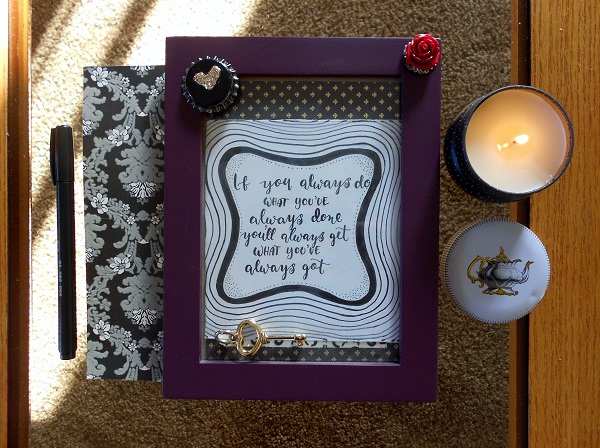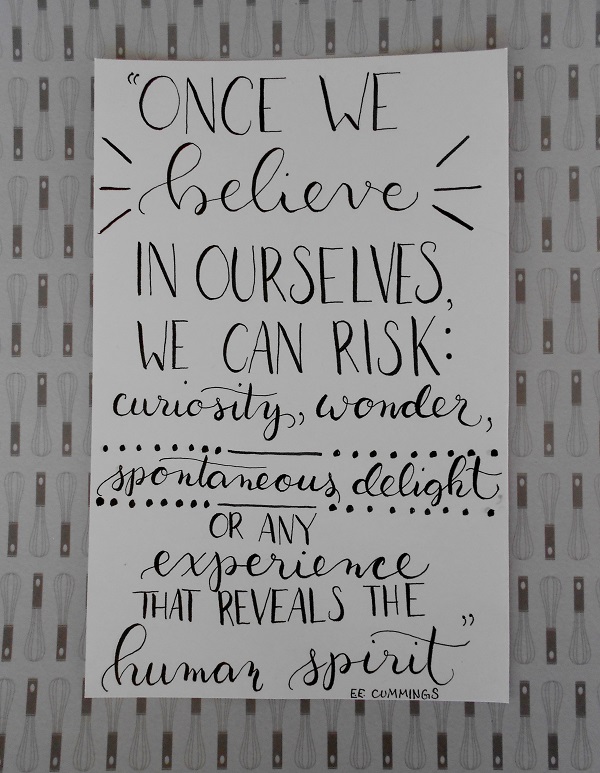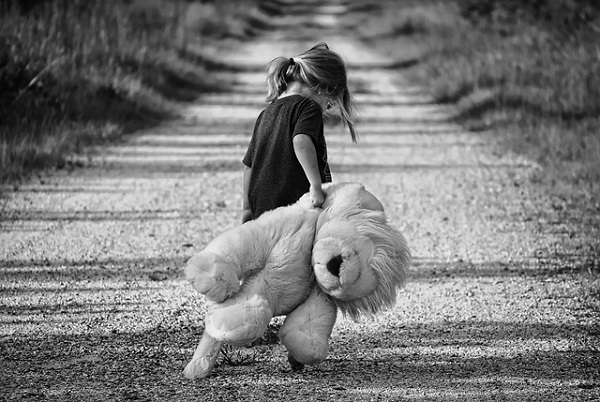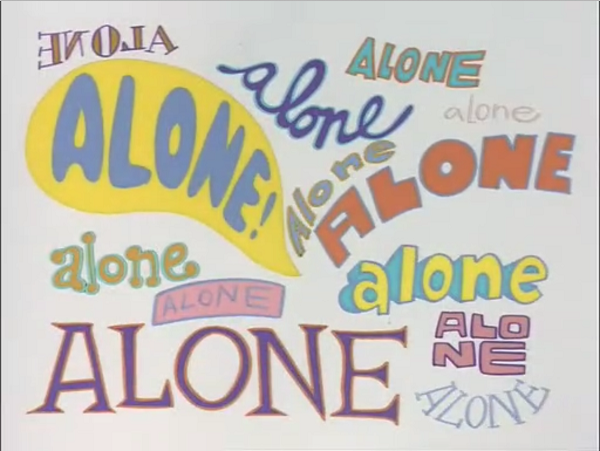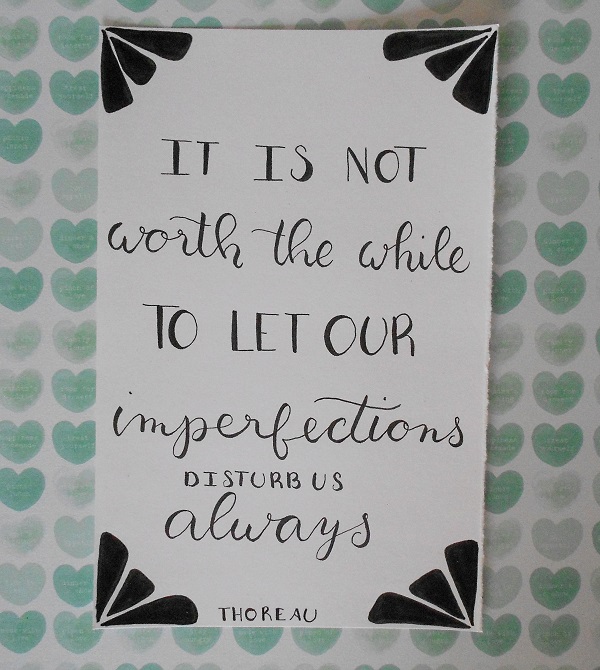This week, my husband and I attended the funeral for his Grandma. It was interesting for me to contrast his family with mine because his family comes from money. I’d gone to a funeral for someone in my own family only a few months back, and the differences between the two were small, yet stark: cowboy boots and sneakers vs. black leather loafers and high heels or three-piece-suits vs. jeans and a button down. I don’t bring this up to put down my family or to shame his; I only bring it up to explain the following situation: During the reception, I sat next to his great aunt, and upon realizing who I was, she took my hand to look at my wedding ring then said “Oh, that’s some Denver jewelry.” I didn’t really know what she meant, and so in the moment, I had no response, but after thinking about it, I realized she was calling it cheap.
A similar situation has happened to me before; some vague comment about my ring that can’t necessarily be interpreted as an insult on face value, but when I take into consideration the entire context, I understand that more is meant by the broad-sweeping words. The real message is some variation of “Why didn’t your husband spring for a diamond?” or “How could you be caught dead wearing that unsparkly thing?”
Well, in truth, my ring wasn’t expensive and it doesn’t sparkle. It doesn’t have any diamonds and it’s not made out of precious metals.
But I don’t care. I love it. It’s the ring I wanted. I specifically asked my husband to buy it for me. Wearing the ring is a way of expressing myself honestly, and actually, for some reason, the ring is one of the few ways I’ve had as much confidence to express myself honestly.
While I don’t care if people like my wedding ring, I do often care if people like my opinions or if they approve of my job or if they think I’m lazy. I care so much about these things that I often find it difficult to be honest with myself in these areas.
I’ll think I’m being honest if the “truth” lines up with what I assume people want from me, but many times, my truth is different than these assumed expectations.
It was more painful for me when my husband’s great aunt asked me that dreaded question “What do you do?” than when she snubbed my ring because I stand by my ring and am proud of it, but it’s harder to stand by more personal choices. In the area of opinions and careers, it’s harder to express myself honestly, and make decisions about my life with confidence.
Recently, I was faced with the option of accepting a part-time job which I knew I’d love, or a full-time job that I didn’t want. I went to the interview for the full-time job and absolutely put everyone in the room to sleep because I already knew I didn’t want it, but I felt like everyone would call me foolish for not even trying to get the full-time job when I could have a meatier paycheck and arguably more stability.
Psychologist Courtney Warren says that the cost of self-deception is living life with painful regrets, and after I left the interview full of drowsy and dull college administrators, I knew that I would regret taking that job. I was honestly thankful that I never received a call from them because it meant I didn’t even have to make the choice, but if I had gotten that call, I like to believe that I would have had the courage to turn it down because I was starting to be honest with myself. After the interview, I didn’t try to find little lies about how the job would be great. I didn’t try to convince myself that the gut feeling I had was wrong or misleading. I just knew, and I went to the job I already had with confidence that I’d made the right choice.
This past year, I’ve been heavily invested in my own personal growth and self-improvement, which has forced me to be more honest because I’ve realized the costs of not doing so.
According to Dr. Warren, along with regret, two additional costs of not being honest are:
1. You hurt yourself and others
“We are deceitful and exploitative of others only insofar as we are in
some significant sense dishonest with ourselves . . .
2. You won’t be capable of change because you can’t change something you can’t admit
— but in so acting toward others,
we also offend against ourselves” (David Carr).
Pain and stagnation are some pretty high costs.

Being honest isn’t easy, but it’s a worthy endeavor, especially when it means you can have a life with more fulfilling relationships and change that encourages growth and success.
For me, the costs of self-deception are: anxiety, indecision, long-lasting unhappiness, and strained relationships.
In order to consider the costs of self-deception for yourself, and learn to be more honest, three ways that you might begin the process of self-honesty are:
1. Learn to listen to yourself
Listening to yourself is going to require some of that good old self-awareness because if you’ve been caught up in performing a version of yourself that you think others want to see, then you’ve probably got a lot of voices that aren’t actually yours swimming around in your head. You’re going to have to do something scary and spend some time, and by some time I mean a lot of time, alone.
2. Sit with discomfort
When you start listening to yourself, you’re going to be confronted with some uncomfortable truths. You’re going to want to resist that discomfort, but being uncomfortable is a part of honesty. That discomfort is why we resist it so much. Stop resisting it. While honesty is unsettling, it also offers a lot of relief. A study out of Notre Dame even backs this up. “The Science of Honesty Study” shows that through the reduction of lying, you can improve your health. Participants in the study who aimed to reduce their daily lying, even in simple ways like not exaggerating or making excuses, reported fewer mental and physical health complaints.
3. Persist in consistently challenging yourself
Being honest with yourself is not a linear process. Just because you are as honest as you can be one week doesn’t mean you will have the psychological stamina to do the same the next week. And, even when you do build up a habit of honesty, new truths will come up at super inconvenient times, and you will experience new discomfort. Remember that with each wave of confronting uncomfortable truths, there’s an ever bigger wave of relief.
…
As was the theme with previous posts in this series, everything is connected. You have to cultivate a sense of self-awareness before you can be honest with yourself, and it might be a good idea to work on forgiving yourself before you come to the hard, critical work of being honest with yourself. Plus, being honest with yourself might also require some more forgiveness. Just like honesty is a non-linear process, so is personal growth. I’ve only prepared these topics in what I think is the most logical order, not the most linear.

Do you find it easy to be honest with yourself? What about being honest with others? Do you think that we can ever fully represent ourselves honestly to others?
